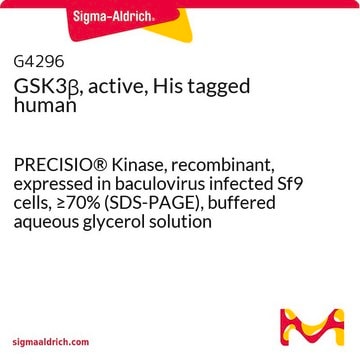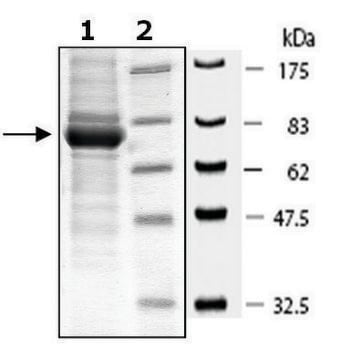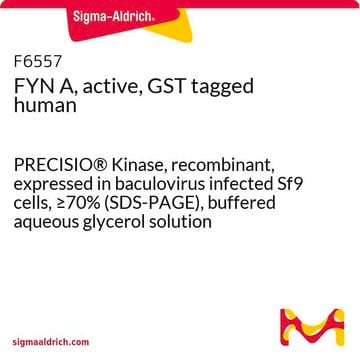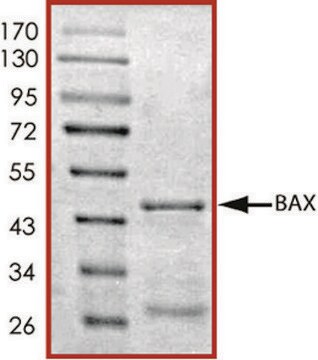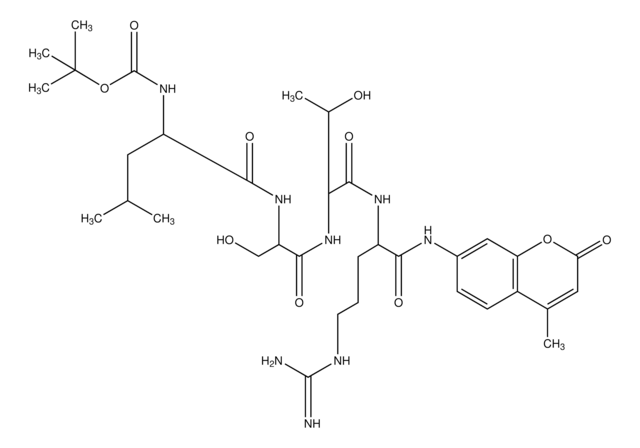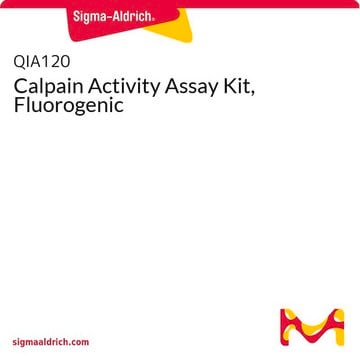SRP0356
GSK3β active human
recombinant, expressed in baculovirus infected Sf9 cells, ≥80% (SDS-PAGE)
Synonyme(s) :
glycogen synthase kinase 3 beta
About This Item
Produits recommandés
Source biologique
human
Produit recombinant
expressed in baculovirus infected Sf9 cells
Pureté
≥80% (SDS-PAGE)
Forme
aqueous solution
Activité spécifique
≥500 pmol/min-μg
Poids mol.
73 kDa
Conditionnement
pkg of 10 μg
Technique(s)
activity assay: suitable
inhibition assay: suitable
Numéro d'accès NCBI
Numéro d'accès UniProt
Conditions d'expédition
dry ice
Température de stockage
−70°C
Informations sur le gène
human ... GSK3B(2932)
Description générale
Application
Actions biochimiques/physiologiques
Code de la classe de stockage
12 - Non Combustible Liquids
Classe de danger pour l'eau (WGK)
WGK 1
Point d'éclair (°F)
Not applicable
Point d'éclair (°C)
Not applicable
Certificats d'analyse (COA)
Recherchez un Certificats d'analyse (COA) en saisissant le numéro de lot du produit. Les numéros de lot figurent sur l'étiquette du produit après les mots "Lot" ou "Batch".
Déjà en possession de ce produit ?
Retrouvez la documentation relative aux produits que vous avez récemment achetés dans la Bibliothèque de documents.
Notre équipe de scientifiques dispose d'une expérience dans tous les secteurs de la recherche, notamment en sciences de la vie, science des matériaux, synthèse chimique, chromatographie, analyse et dans de nombreux autres domaines..
Contacter notre Service technique
